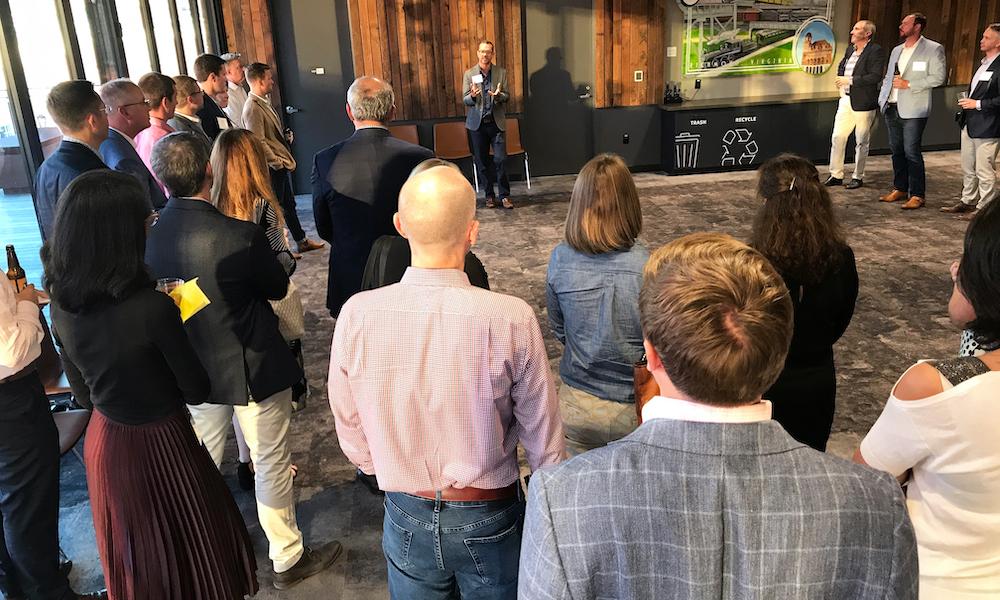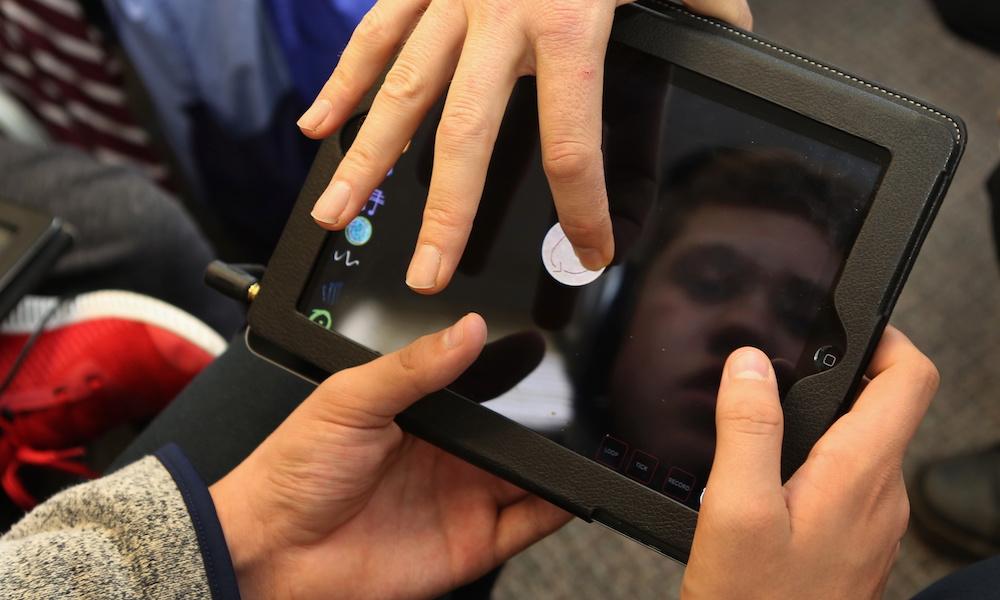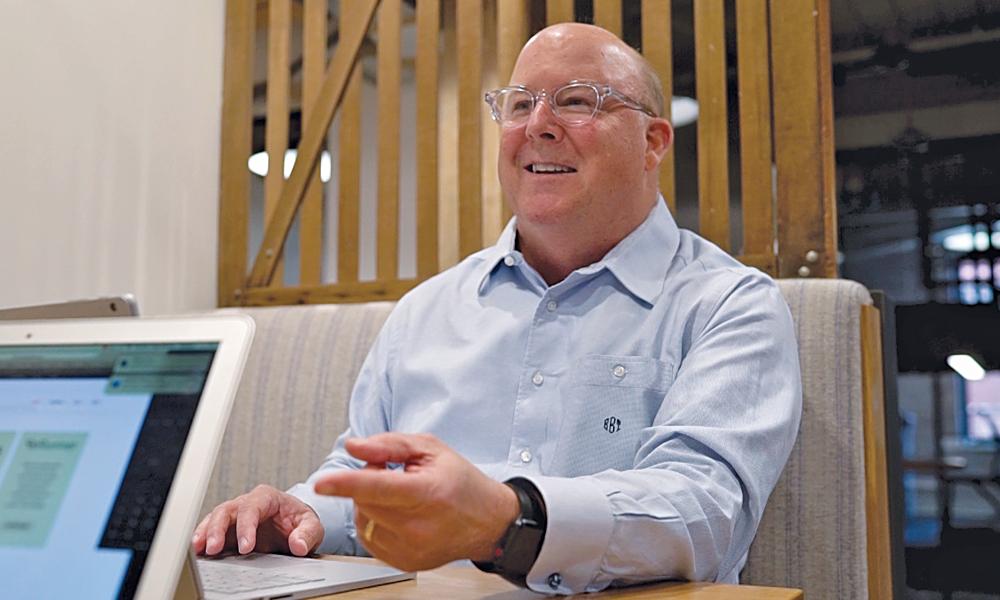Business incubator helping startups navigate uncertainty
Business
SUMMARY: With support from community partners, mentors, investors and donors, Startup Virginia’s goal is to help its member companies grow faster and smarter than they would on their own. Members benefit from workshops that address specific needs as well as more holistic programming to help founders hone their leadership skills, improve company culture, practice mindfulness and build community.
By Jim Heffernan (’96, ’17M)
Like many of the small businesses it nurtures, Startup Virginia welcomed 2020 with great expectations.
The Richmond, Virginia-based incubator’s 78 member companies had combined to generate $26.3 million in revenues in 2019—a 361% increase over the previous year—and employ more than 450 people in the region. Startup Virginia had provided 116 training programs, logged 2,863 hours of mentoring, awarded 308 certificates to graduates of its nine-week community entrepreneurship program, and shared its workspace in a century-old converted tobacco warehouse in the city’s Shockoe Bottom district with 185 founders and their employees.
“We had a fantastic year,” said executive director Richard Wintsch (’97), and that momentum carried over into the first quarter of 2020.
Then, suddenly, the wheels came off. “When COVID-19 hit,” Wintsch said, “that created a lot of extremely difficult and uncertain situations for not only us, but also our members.”
To help ease the burden on its members, Startup Virginia waived its membership fees for April, May and June. Although the organization was forced to close its doors and cancel events during the second quarter, it successfully moved its programming online and continued to mentor member companies remotely.
“We remain committed to executing our mission and supporting our startups during this difficult time,” Wintsch said.
In the wake of the coronavirus pandemic, Startup Virginia created a free virtual resource guide to help small businesses navigate the changing landscape, including securing federal funds through the Coronavirus Aid, Relief, and Economic Security Act. It compiled a list of Professionals in Transition to connect growing companies with talented individuals looking for new career opportunities. And in June, the incubator received a $50,000 grant from GO Virginia to encourage aspiring entrepreneurs in the Richmond area impacted by the economic downturn to launch their own businesses, particularly in technology and manufacturing.
“A lot of folks, unfortunately, are out of work right now, and some of them have great ideas that we can help grow into businesses,” Wintsch said of the project, known as the Idea Factory, a joint venture with the local product development company Bldr.
“Entrepreneurs see times like these as an opportunity to do things differently,” he said. “They’ll either adjust their business to fit or they’ll create a new business.”
With support from community partners, mentors, investors and donors, Startup Virginia’s goal is to help its member companies grow faster and smarter than they would on their own. Members benefit from workshops that address specific needs as well as more holistic programming to help founders hone their leadership skills, improve company culture, practice mindfulness and build community.
Two companies currently on Startup Virginia’s roster were founded by JMU graduates.
Light the Music is reimagining music education. The company’s ORO Visual Music Education programs help children learn and create using the intuitive connection between visuals and sounds.
Light the Music traces its roots to JMU. Co-founders Steve Van Dam (’92) and Craig Honeycutt (’92) were in the band Everything, which was a force on the local music scene in the early 1990s. After leaving JMU, the group went on tour, signed with a record label and even had a hit song, Hooch, in 1998.
In 2016, Van Dam, who studied music composition at JMU, transitioned from writing music for film and television to designing curricula and apps for music teachers.
Music education has been relatively unchanged for 100 years, Van Dam said. “In elementary and middle school, you spend a lot of time learning to read music and learning to sing or to play an instrument. It’s a major commitment. By the time they reach high school, a lot of kids drop out.”
ORO is designed to remove the barriers to music creation, making it a great tool for children with disabilities and others who would otherwise slip through the cracks of music education.

|
By 2019, Light the Music, with Startup Virginia as its host and mentor network, was growing by leaps and bounds. Sales of ORO curricula and apps were up 400% in a six-month period. “There was no runway,” Van Dam said. “It was all systems go.”
When COVID-19 hit earlier this year, music educators lost the ability to teach in the way they were accustomed, Van Dam said. “You could no longer sing or play instruments in a room together. And you can’t coordinate it over Zoom because of the delays.”
The pandemic created an opportunity for Light the Music to convince educators of the value of interactive musical experiences that keep children engaged, Van Dam said. And with virtual learning likely to continue as the new school year starts, the company is poised to continue to grow.
Light the Music’s chief financial officer, Andrew Town (’92), and sales director, Jackie Wilson (’93), are also JMU graduates, and intern Scott Tiernan, an industrial design major, is helping with graphic design and video production.
Bionica Labs, meanwhile, develops wearable medical devices with support from federal government customers. The company’s patented technology monitors tissue oxygenation in the brain in real time.
Founder and CEO Casey Boutwell (’08) was a physics major at JMU who went on to earn a master’s degree and a Ph.D. in optics from Central Florida University. In 2013, he accepted a position in North Carolina State University’s Office of Technology Transfer, where he worked on patent strategies and sought companies to make commercial use of the university’s faculty and student inventions. Boutwell then moved to a research center at North Carolina State that investigated digital health devices. He left Raleigh in August 2018 with three of his co-workers to found Bionica Labs.
In Richmond, Boutwell discovered not only a community of entrepreneurs, but also a hub in Startup Virginia’s 1717 Innovation Center in which to leverage talent, mentorship and capital. “I was able to find a resource where other people in the community also expected to find people like me,” he said. “It was like a startup magnet.”
As a member company, Bionica Labs gained valuable office space, a mailing address, access to printers and other office supplies, and a steady stream of coffee. “Startup Virginia accelerated our legitimacy,” Boutwell said.
When he and his team encountered a problem, the staff at Startup Virginia searched their mentor network to find the right person to help solve it. “I even found my attorney through them,” he said.
Nearly half of Startup Virginia’s member companies are women-, minority- or veteran-owned, which helps strengthen communities, Wintsch said. “We’re actively working on educating our own business community on the importance of diversity and inclusion.”
One of the biggest challenges startups face, he said, is funding. “I think a lot of entrepreneurs make the mistake of trying to get funding when their business is not ready to be funded. You have to do a lot of customer discovery work to make sure that you have something that someone is willing to pay for. And if you can demonstrate that, then hopefully fundraising will follow.”
Startup Virginia has a network of more than 300 accredited investors who are willing and able to fund startups. “If you’re at a point where you’re raising capital, you can come make your pitch to our group,” Wintsch said.
Although Wintsch doesn’t share entrepreneurs’ tolerance for risk, he’s passionate about leadership development and building strong communities.
As an executive with the Richmond Chamber of Commerce, Wintsch was introduced to incubators while visiting other cities and talking with local business leaders. When he found out that a team including fellow JMU alumnus Bryan Bostic (’83) planned to launch one in Richmond backed by Capital One, Wintsch was intrigued. He joined Startup Virginia as chief programming officer in 2017.
“As interim director, Bryan did an amazing job leveraging his relationships and setting the stage for the nonprofit to be a success,” Wintsch said. “And then, when the time was right, he handed it over to me to lead. After 14 years at the chamber, I couldn’t have dreamed of a better career opportunity.”

|
As executive director, Wintsch believes his main responsibility is “to make sure we have the infrastructure in place” to fulfill Startup Virginia’s mission of helping high-growth startups reach their full potential. That includes fundraising. As a nonprofit, Startup Virginia receives about half of its annual operating budget from membership fees. The other half is a combination of grants, corporate partnerships and individual donations.
During a “Being the Change” interview with JMU in 2018, Bostic, a successful entrepreneur who sits on Startup Virginia’s board of directors, said there’s no better feeder system for the next set of business pioneers than Virginia’s colleges and universities.
“People want to buy from people they like, people they trust, people they feel comfortable with,” he said. “And JMU puts out people who meet all three of those characteristics.”
Wintsch said JMU’s culture of innovation and entrepreneurship across disciplines is meeting a need. “The new generation, I think, wants to do a lot more with it and will be demanding of it,” he said. “Fostering innovation and entrepreneurship at a young age can really help with that. … The dream would be, when they’re ready and want to work on their venture full time, they can come to an incubator like Startup Virginia.”
Moving forward, Wintsch said Startup Virginia will continue to help small business leaders build viable, responsible companies. The organization also hopes to make its resources and programming more widely available.
“People say that Richmond is home to one of the nicest incubators in Virginia,” he said. “But my challenge, and my team’s challenge, is to be known as one of the best incubators in the country.”

